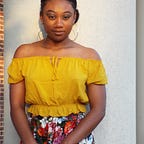Portfolio #6
This week’s readings were really informative on the topics of branding, promotional media, and the dynamics of being an influencer. What I learned from Banet-Weiser’s reading on brand culture is that brands — and their effect — are much more pervasive in our society than we seem to realize and that the process of branding goes beyond establishing a reputation for a product but instead extends to creating a characteristic and identifiable experience for the consumer. I also learned that authenticity and authentic spaces are increasingly branded and that the characteristic and identifiable experience that ties into a brand is often rooted in authenticity or authentic exchanges between consumer and brand/corporation. What I learned from the Buzzfeed article is that being an influencer is time-consuming, expensive, risky, and can even be isolating. However, it has quite the payoff if an influencer makes it, and can be a stepping stone for more stable and long-lasting success.
Banet-Weiser defines a brand as “the intersecting relationship between marketing, a product, and consumers” (4) and goes on to explain that it is not just the defining characteristics of a brand that we come to recognize and internalize (like their logo, slogan, etc.) but it is also the “the series of images, themes, morals, values, feelings, and sense of authenticity conjured by the product itself.” 4) This really rang true to me, and I noticed that when I interact with a brand that I am not just interacting with the product itself, but I am also experiencing feelings and attributing morals/values to the product. For example, I have a lot of Apple products. When I interact with the Apple brand, I experience characteristics of the product, but my experience is also defined by the values I place on the product (greater technological value, an indication of status, etc.) and the feeling of authenticity that the products give me.
It’s authentic to me because I feel a sense of personal connection to the product and I am sure of the quality that I am getting. Authenticity as a brand also related to influencers, in my opinion, since many of them use authenticity as a brand. For instance, Youtuber Emma Chamberlain and others like her. Her brand is being “relatable” or quirky, and it makes viewers feel like she is more real than other influencers and like they have a personal connection to her. The irony of it all is not lost on me though, since what is portrayed on social media and the lifestyle that influencers craft is the furthest thing from being “real.” It seems that we seek authenticity so much because things are becoming more and more superficial.
